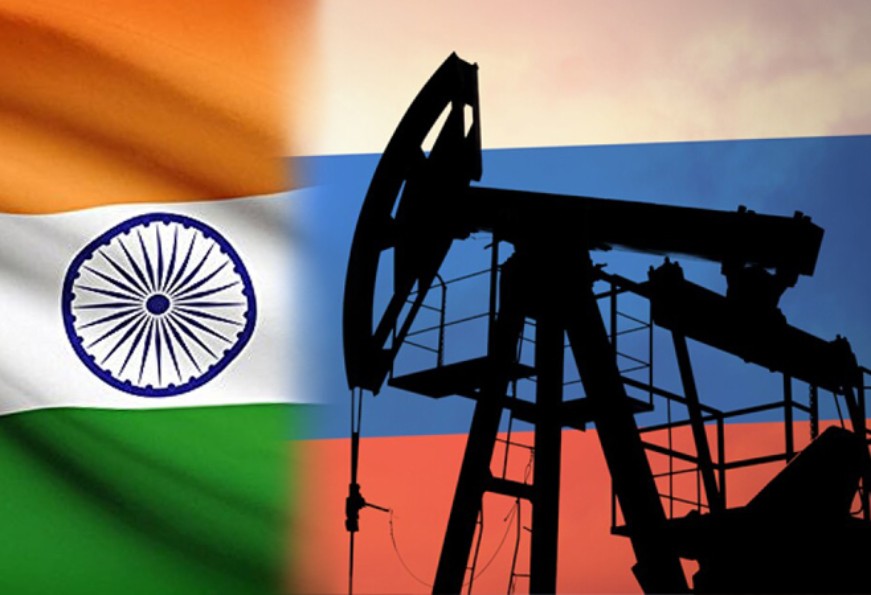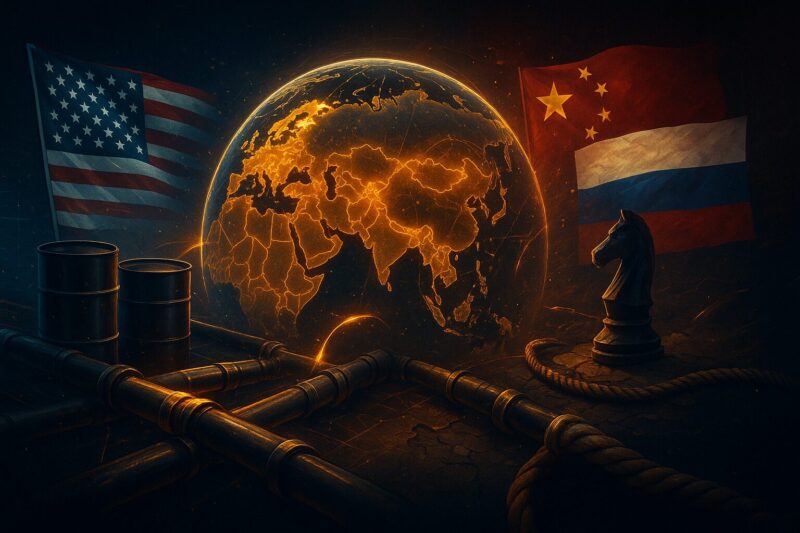The US weaponizes oil politics by sanctioning Russia’s largest oil exporters Rosneft and Lukoil, and this strategy is targeting energy cooperation within BRICS by exploiting trade dependencies that already exist. The October 22, 2025 sanctions are forcing India and China to make a choice between discounted Russian crude and maintaining favorable relations with America, which is directly threatening the oil trade between Russia, China and India along with the overall unity of BRICS itself.
Also Read: Trump Holds ‘Massive’ Tariffs Until BRICS Member India Cuts Russian Oil
How US Sanctions and Energy Politics Threaten BRICS Oil Trade


Right now, the sanctions are targeting companies that export 3.1 million barrels daily, which represents about 70% of Russia’s overseas crude sales. India is facing 50% tariffs on its US exports at the time of writing, while China is dealing with 30% levies on its side. The way the US weaponizes oil politics here involves setting a November 21 deadline for winding down operations, and also threatening secondary sanctions on financial institutions that process payments for the oil trade involving Russia, China and India.
Treasury Secretary Scott Bessent stated:
“Given President Putin’s refusal to end this senseless war, Treasury is sanctioning Russia’s two largest oil companies that fund the Kremlin’s war machine.”
Bob McNally, who is President of Rapidan Energy Group, explained that the strategy actually aims to cut Moscow’s profits without completely stopping exports by forcing them to sell at even steeper discounts. Chinese state oil companies such as PetroChina, Sinopec, CNOOC, and Zhenhua Oil have announced they would refrain from buying Russian seaborne oil while they assess the impact of these sanctions.
The economic calculus here is being weighed carefully by both nations. India and China both conduct far more trade with the United States than they do with Russia, despite the fact that Moscow has been supplying substantial energy imports to them. This creates a prisoner’s dilemma where neither country wants the other one gaining better relations with Washington at its expense.
BRICS Responds With Unity Agreement
Despite all this pressure, BRICS member nations were able to sign a cooperation agreement in Moscow on October 28, 2025. The agreement demonstrates that energy cooperation within BRICS is continuing even as the US weaponizes oil politics to try and fracture the alliance through economic pressure and threats of secondary sanctions.
Mehdi Chamran, Chairman of Tehran City Council, stated:
“I am pleased that we are signing this historic agreement, which aims to counter the unilateralism of the U.S. and the West.”
India has made its position on this matter clear through official statements. The Ministry of External Affairs spokesperson Randhir Jaiswal had this to say about their energy priorities:
“Securing the energy needs of our people is understandably an overriding priority for us. In this endeavor, we are guided by what is there on offer in the markets, as also by the prevailing global circumstances. We would particularly caution against any double standards on the matter.”
Also Read: Brent Rises 1.5% as OPEC’s 137K bpd Boost Calms Glut Fears
His comment actually references how European Union members continue procuring Russian energy despite the imposed sanctions. China’s foreign ministry said the country “consistently opposed unilateral sanctions,” which shows that both nations are resisting the pressure to completely abandon their energy arrangements with Russia.
Short-term Disruptions
The way the US weaponizes oil politics through these measures might succeed in creating some short-term disruption and generating headlines about reduced imports. But workarounds such as intermediaries, steeper Russian discounts, and alternative payment systems that countries are developing could limit the actual real-world effects on energy markets and cooperation within BRICS.
Russia, China and India have built the oil trade over years and it represents significant economic value for all three nations, which makes complete decoupling unlikely even under this pressure from Washington.





